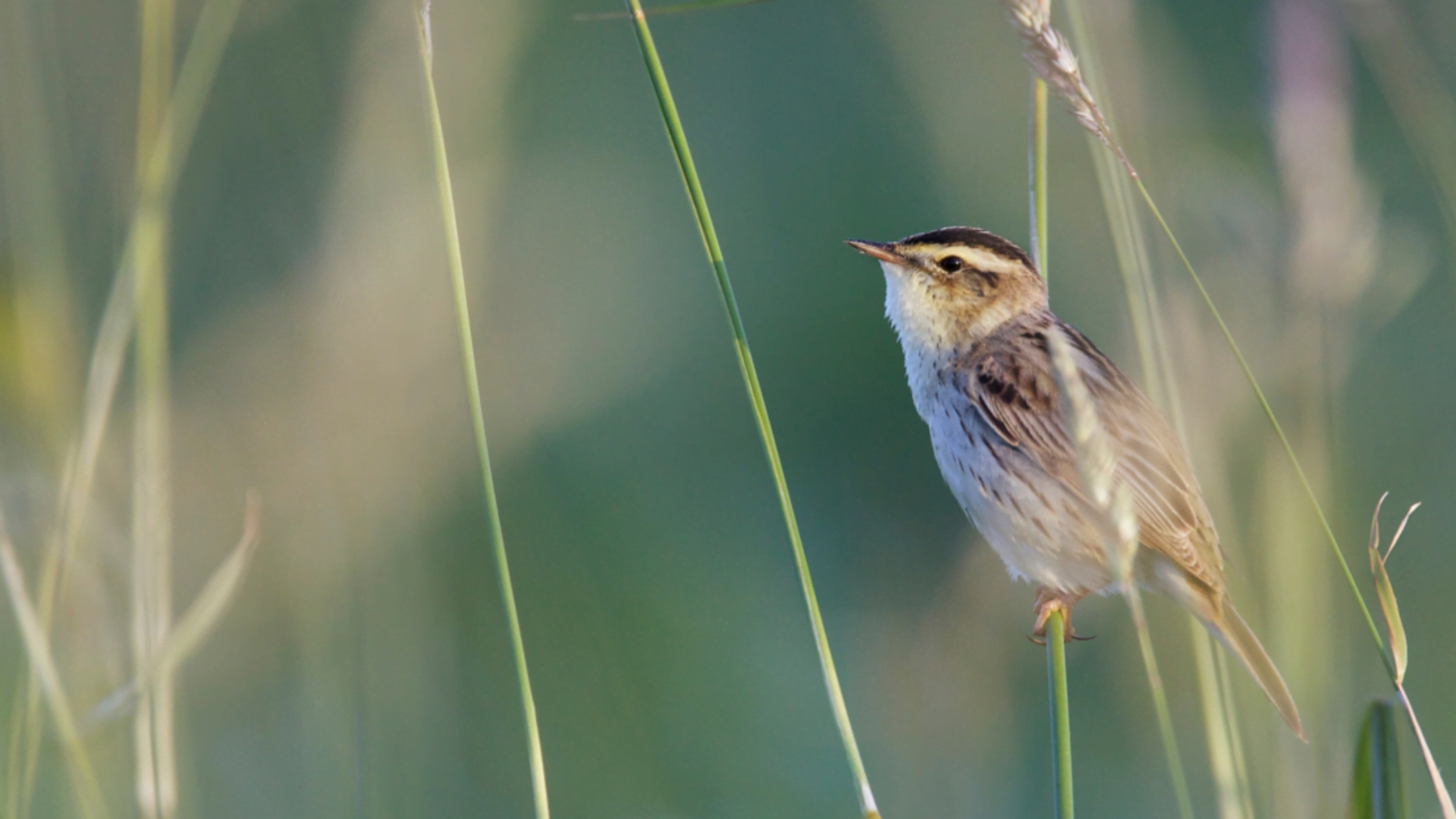To protect the Aquatic Warbler, the most threatened passerine bird in continental Europe, the new international project LIFE AWOM (Aquatic Warblers on the Move) was launched this month. In Portugal, the project includes the participation of SPEA and CESAM/UA, who join partners from four countries and two continents to ensure the survival of this species along its migratory route.
José Alves, researcher from CESAM/DBIO, says that, “This project is also an opportunity to raise awareness about the need for coordinated conservation of migratory birds by the multiple countries they call ‘home’. Only by doing so can we safeguard species that depend on habitats thousands of kilometers apart throughout their annual cycle,”.
LIFE AWOM is one of the most comprehensive projects ever undertaken to secure the Aquatic Warbler’s survival along its flyway and reinforces the importance of the Natura 2000 Network as a vital backbone for biodiversity conservation in Europe.
“SPEA is proud to be part of this joint effort, which will enable the restoration of vital habitats in Portugal and strengthen our role in conserving globally threatened migratory birds,” says Julieta Costa, Head of the Conservation Department at SPEA.
The Aquatic Warbler, weighing only 10 grams, migrates thousands of kilometers each year between Central and Eastern Europe and Sub-Saharan Africa. Along this journey, the species relies on healthy wetlands for rest and feeding—ecosystems increasingly under threat from drainage, pollution, and climate change. Its conservation, therefore, demands a coordinated international approach.
Co-funded by the European Union’s LIFE Programme, the LIFE AWOM project brings together organizations from Portugal, Spain, France, Belgium, and Senegal to identify and restore 20 priority wetlands along the Aquatic Warbler’s migratory route. Most of these sites are part of the Natura 2000 Network, underlining its essential role in safeguarding European biodiversity.
In addition to ecological habitat restoration, the project includes actions for monitoring, technical training, and integration with public policies such as the Common Agricultural Policy (CAP), aiming to promote long-term sustainable solutions. Each participating country will also develop a national action plan dedicated to the species’ conservation.
“Through LIFE AWOM, SPEA reaffirms its commitment to protecting birds and natural wetland habitats in Portugal, contributing to a more resilient and biodiverse future,” adds Julieta Costa.
The official launch of the project took place in Madrid, on May 21–22, with a Public International Conference held at the MITECO Auditorium (Ministry for the Ecological Transition and Demographic Challenge), coinciding with Natura 2000 Day and Biodiversity Day. The opening event brought together representatives from public administrations, national and international conservation NGOs, and research centers, reinforcing the collective commitment to transnational cooperation and the protection of endangered migratory species.
Original source: spea.pt, 27 May 2025
